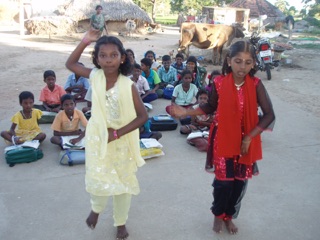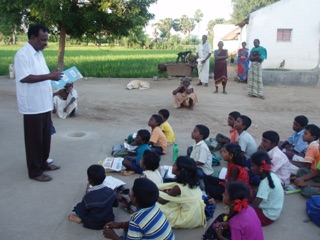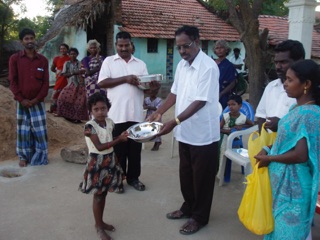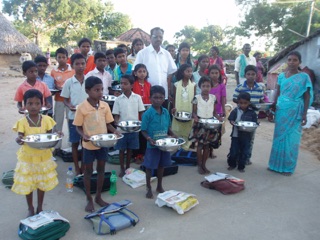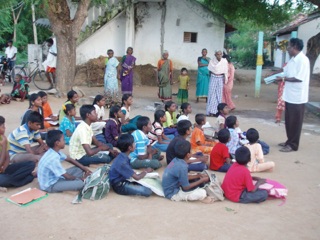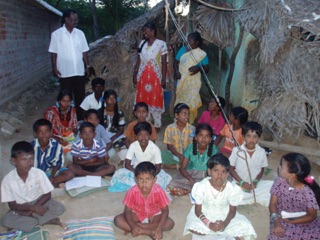Child Development Centres
2019
Due to the poverty some of them have discontinued their education in the primary level. So we have sponsored these villages and are aiming to give awareness and develop the children and their families.
Our project programmes:
1.We have appointed part time lady teachers. They live in the villages and conduct evening classes from 5.00P.M. to 7.00 P.M. for the whole village children.
2.we are providing books, note books and pens for the children.
3.we are providing new clothes and special gifts to all the children in the R.C.D.C.
4.We are providing snacks in the evening classes.
5.We are inviting all the R.C.D.C. children to Joan’s Grace Home (our project compound ) twice in a year and giving opportunities for them to take part in the cultural programmes and enabling them to have good fellowship with other R.C.D.C. children.
6.We are providing a fellowship dinner with the residential hostel children.
7.We are arranging an educational tour once in a year. The village children are very happy and they have a very good opportunity to see the big cities and the coast.
We are now working in a sixth village - see here
Child Development Centres

Information
Name of village:- Saiyananthal
Total families :- 76
Village population :- 280.
Children :- 35
Community :- Dalit ( out cast )
Religion :- Hindu and Christian.
Occupation :- Daily wagers in agriculture.
Facilities :-
No school, No transport facilities,
No hospitals, No shops.
Most of the people are uneducated.
Houses :-
Most of the families living in the
mud wall and palm roof houses,
In 2007 the project began to work to support education in five remote villages around Devakottai.
Most of the parents in these are illiterate and very poor. Parents go to work in the field in the early morning and return home in the late evening. As they are uneducated they never bother about their children’s education and health. Most of the children are forced to work with their parents; some of the elder girls are compelled to look after the younger children.
